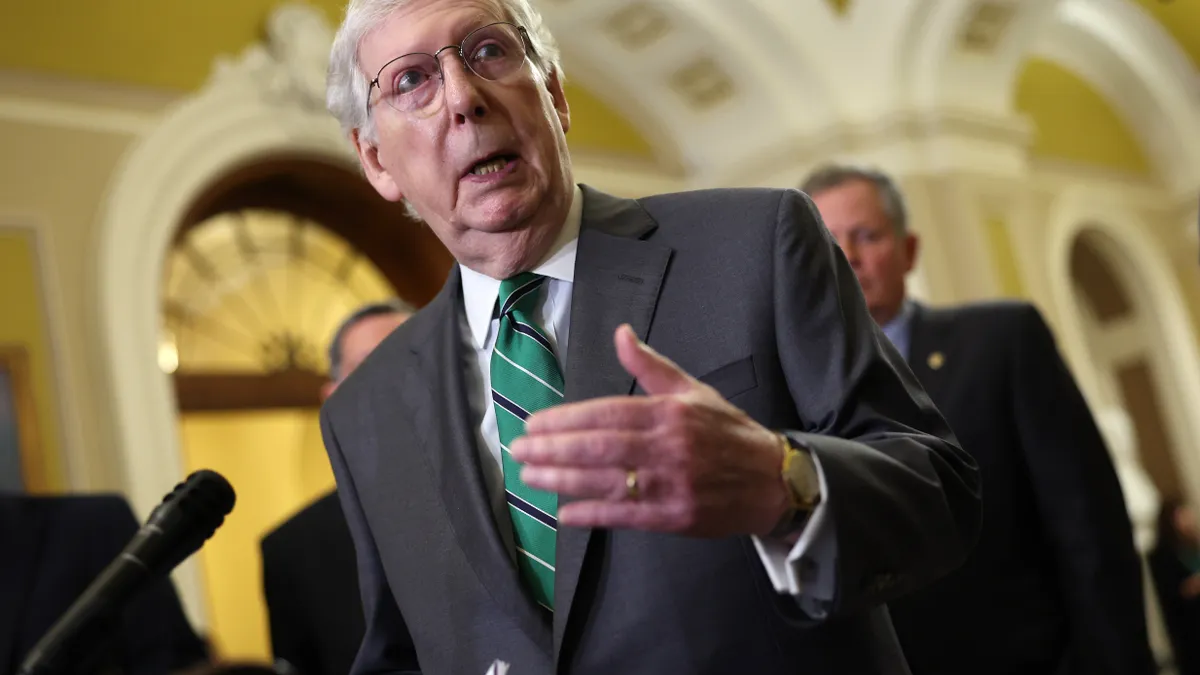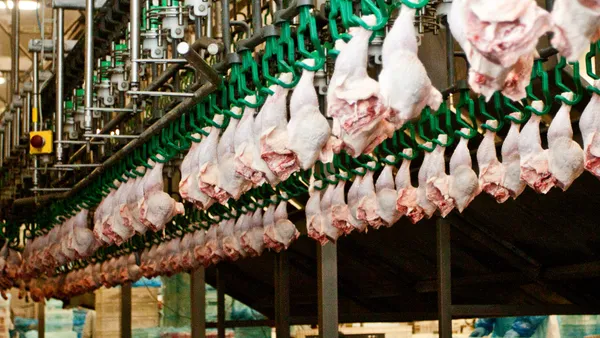Dive Brief:
- Additional funding for this year's farm bill will be "hard to come by" amid debates over government spending, said Senate Minority Leader Mitch McConnell Wednesday following a roundtable at the University of Kentucky’s Martin-Gatton College of Agriculture, Food and Environment.
- "We've passed an agreement with the debt ceiling to cap on spending, so a lot of additional spending in this farm bill seems unlikely," the Kentucky Republican said.
- Arkansas Sen. John Boozman, the Republican lead in the Senate agriculture committee, said lawmakers are still "committed to getting all of the resources that we can, particularly with risk management tools" such as crop insurance.
Dive Insight:
Projected spending for the 2023 Farm Bill is set to top $1 trillion, largely driven by ballooning costs associated with running the Supplemental Nutrition Assistance Program. With the high price tag and a recent bipartisan agreement to cap non-discretionary spending for two years, the prospect of any additional funding has been all but ruled out.
SNAP is projected to make up more than 80% of farm bill spending. Meanwhile, conservation, risk management and other programs essential to the agriculture industry are projected to receive less than they did in 2018 — potentially setting the stage for a fight over limited funding.
The farm bill remains in early negotiations, according to Boozman. But he hinted that this year's package will emphasize risk management for farmers and address bird flu and other disease outbreaks that have devastated livestock herds.
Boozman added that funding for crop insurance and other programs need to remain robust as commodity prices begin to fall and farmers grapple with rising input costs.
"Now we're in a situation with very high interest rates, high input costs, commodity prices are actually up a little bit, but they're projected to go down significantly," Boozman said. "So we need to make sure we have the risk management tools in place for farmers to go on.”











